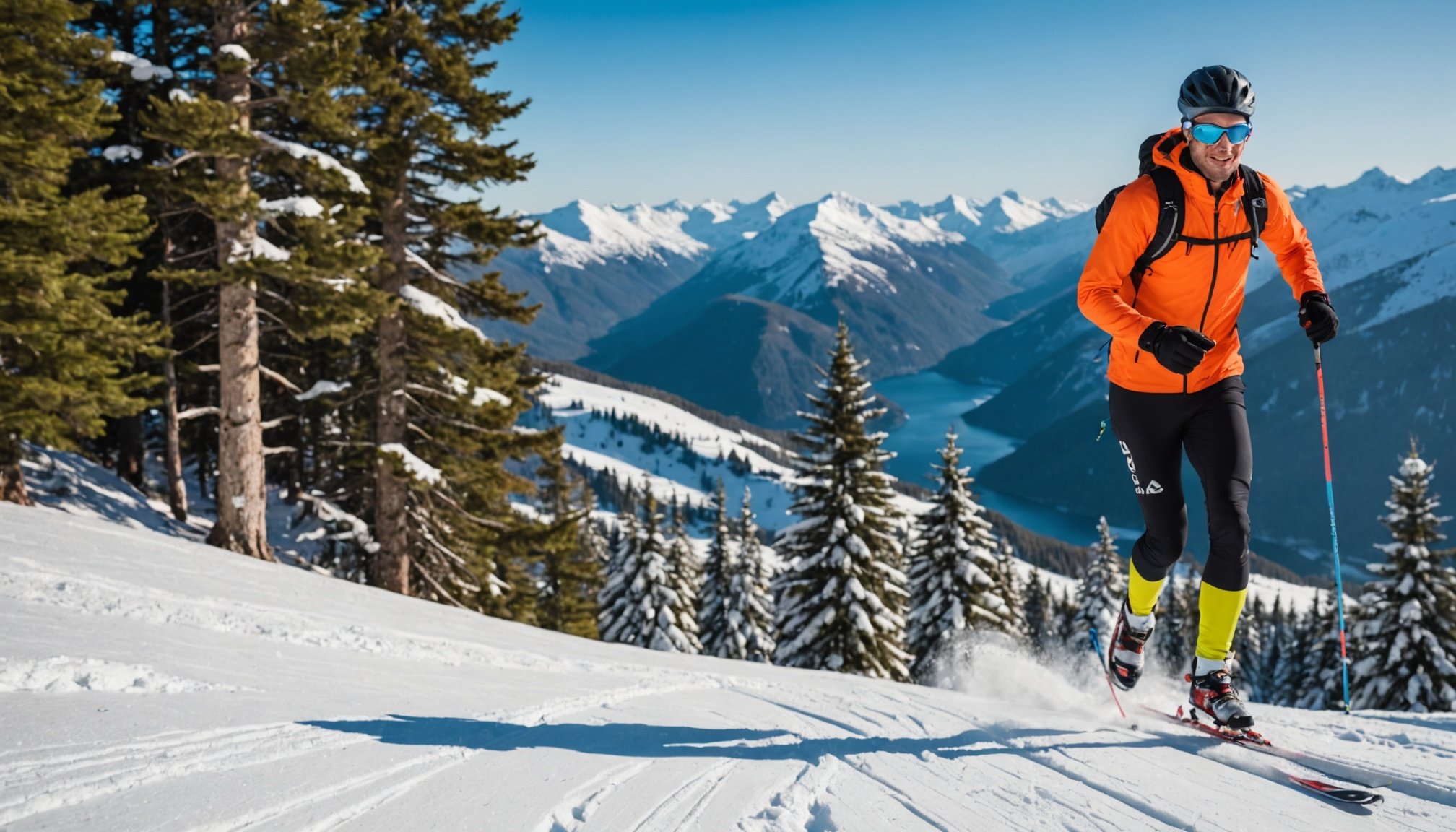Winter sports offer thrilling adventures, but staying properly hydrated often takes a backseat to exhilaration. Cold air, combined with physical exertion, can mask dehydration symptoms, leading to fatigue and impaired performance. This guide provides essential hydration tips tailored for UK winter sports enthusiasts. From understanding fluid needs to choosing the right beverages, these tips will help you maintain peak performance on the slopes. Equip yourself with knowledge to balance hydration, ensuring your winter activities are not only enjoyable but also safe and effective.
Importance of Hydration for Winter Sports
Understanding the critical role of hydration in winter sports is essential for optimal performance.
Also read : Discovering Sustainable Weight Loss Strategies in the UK That Preserve Mental Wellness
Hydration’s Role in Athletic Performance
Maintaining proper hydration is crucial for athletes, as it directly impacts their performance. During winter sports, the body works harder to regulate temperature, increasing the demand for fluids. Even in cold weather, athletes sweat and lose fluids, which can affect endurance, strength, and overall health.
Effects of Cold Weather on Hydration Levels
Cold weather can deceive athletes into thinking they need less water. However, the dry air and increased respiratory fluid loss can lead to dehydration. It's important to recognize these unique challenges in winter sports to avoid the pitfalls of inadequate hydration.
Also to read : Discover the Best Breathing Techniques for Ultimate Relaxation: A Guide for UK Residents
Common Misconceptions About Hydration in Winter Sports
There are several misconceptions about hydration in cold environments:
- Myth: Less sweat means less need for water.
- Reality: Dehydration can occur even in cold temperatures.
- Myth: Thirst is a reliable indicator of hydration needs.
- Reality: Thirst often underestimates fluid requirements.
By understanding these misconceptions, athletes can better prepare themselves for the demands of winter sports, ensuring they stay healthy and perform at their best. Prioritizing hydration is a key element in achieving athletic success in any season.
Hydration Strategies for Cold Weather
Understanding the unique challenges of hydration in cold weather is crucial for winter athletes.
Recommended Daily Fluid Intake
Winter athletes should aim for a daily fluid intake that supports their increased hydration needs. A good starting point is approximately 3-4 liters per day, depending on activity levels and individual requirements. This ensures they are well-prepared for the demands of their sport.
Importance of Pre-Hydration
Pre-hydration is a vital strategy for maintaining optimal hydration during winter sports. Athletes should consume 500-600 ml of water or a sports drink about two hours before activity. This practice helps to top up fluid levels, reducing the risk of dehydration during exertion.
Strategies for Maintaining Hydration
To effectively manage hydration during activities, athletes can adopt several strategies:
- Carry a water bottle: Keep it easily accessible to encourage regular sips.
- Use insulated bottles: Prevent fluids from freezing in cold conditions.
- Monitor urine color: Aim for a pale yellow as an indicator of proper hydration.
By implementing these hydration strategies, winter athletes can enhance their performance and safeguard their health, ensuring they stay at the top of their game regardless of the cold.
Ideal Hydration Beverages for Winter Activities
Winter athletes should consider specific hydration beverages to optimize performance.
Warm Beverages for Hydration
Warm beverages can be comforting and effective for staying hydrated in cold weather. Herbal teas, such as chamomile or peppermint, provide warmth and aid in hydration without caffeine's dehydrating effects. They can be an excellent choice for athletes needing to maintain fluid levels and stay warm simultaneously.
Benefits of Warm Beverages:
- Provide warmth and comfort
- Support hydration without caffeine
- Offer antioxidants and other health benefits
Electrolyte Drinks Suitable for Cold Weather
Electrolyte drinks are crucial for replenishing lost minerals during winter sports. Opt for beverages with balanced sodium and potassium levels to maintain electrolyte balance. Sports drinks that are low in sugar but rich in essential minerals can be particularly beneficial in cold environments.
Key Features of Electrolyte Drinks:
- Balanced sodium and potassium
- Low sugar content
- Enhanced hydration support
Avoiding Dehydrating Drinks
Certain drinks can lead to dehydration and should be avoided. Beverages high in caffeine or alcohol can increase fluid loss, counteracting hydration efforts. Athletes should be cautious of these beverages to ensure optimal performance and health.
Drinks to Avoid:
- Caffeinated beverages
- Alcoholic drinks
- Sugary sodas and energy drinks
Timing Your Hydration
Understanding the importance of timing can enhance your sports hydration strategy.
Importance of Timing Hydration
Proper hydration timing is essential for winter athletes. Consuming fluids at the right times can significantly impact performance and recovery. Before engaging in winter sports, athletes should focus on pre-hydration to ensure they start with adequate fluid levels. During activities, maintaining hydration is crucial to offset fluid loss from sweat and respiration. Post-activity hydration helps replenish lost fluids and supports recovery.
Recommended Hydration Schedule
A strategic hydration schedule can optimize performance in winter sports. Here’s a suggested plan:
- Before Activity: Drink 500-600 ml of water or electrolyte drink 2 hours prior.
- During Activity: Consume 150-250 ml every 15-20 minutes.
- After Activity: Rehydrate with a beverage containing electrolytes to restore balance.
Adjusting Hydration Based on Activity
The intensity and duration of winter sports can vary, necessitating adjustments in hydration timing. For high-intensity or prolonged activities, increase fluid intake to match the elevated demands.
Hydration Timing Adjustments:
- Higher Intensity: Increase frequency of fluid intake.
- Longer Duration: Extend hydration period post-activity.
By tailoring hydration timing to specific needs, athletes can maintain peak performance and health.
Signs and Symptoms of Dehydration
Recognizing the signs of dehydration is crucial for maintaining optimal performance in winter sports.
Common Signs of Dehydration in Winter Conditions
Dehydration can be deceptive in cold weather, as symptoms might not be immediately obvious. Common signs include dry skin, chapped lips, and a persistent feeling of thirst. Athletes may also experience headaches, dizziness, or fatigue, which can severely impact their performance.
Physical Effects of Dehydration on Performance
The physical effects of dehydration are significant. Reduced fluid levels can lead to decreased endurance, impaired cognitive function, and muscle cramps. These symptoms not only hinder athletic performance but also increase the risk of injury. Maintaining hydration awareness is essential for athletes to avoid these pitfalls.
Importance of Self-Monitoring Hydration Levels
Self-monitoring is a proactive approach to preventing dehydration. Athletes should regularly assess their hydration status, especially in winter conditions. A simple yet effective method is to observe urine color, aiming for a pale yellow. Additionally, keeping track of fluid intake and adjusting based on activity level and environmental conditions can help maintain proper hydration awareness.
Key Self-Monitoring Tips:
- Check urine color frequently
- Adjust fluid intake based on activity
- Be vigilant for signs of dehydration
By understanding and monitoring these signs, athletes can ensure they remain hydrated and perform at their best.
Hydration and Altitude Effects
Adapting hydration strategies to high-altitude conditions is crucial for winter athletes.
Understanding Altitude's Impact on Hydration
Altitude Hydration is a critical consideration for athletes participating in high-altitude sports. At higher elevations, the body experiences increased respiratory fluid loss due to lower oxygen levels. This can lead to quicker dehydration, necessitating a heightened awareness of fluid needs. The dry, cold air at altitude can exacerbate fluid loss, making it essential for athletes to adapt their hydration strategies accordingly.
Adjusting Fluid Intake for High-Altitude Sports
In high-altitude winter sports like skiing or snowboarding, athletes must increase their fluid intake to compensate for the enhanced hydration demands. A general guideline is to consume an additional liter of water per day compared to sea-level activities. This adjustment helps maintain optimal performance and reduces the risk of altitude-related health issues.
Tips for Staying Hydrated at Altitude
- Pre-hydrate before ascending to higher elevations.
- Carry insulated water bottles to prevent freezing.
- Monitor urine color to ensure adequate hydration.
By understanding and implementing these strategies, athletes can effectively manage their hydration needs at altitude, ensuring they remain healthy and perform optimally in challenging environments.
Research Insights on Hydration in Cold Climates
Exploring scientific findings to enhance hydration strategies in winter sports.
Overview of Recent Studies
Recent hydration research in cold climates highlights the unique challenges athletes face. Studies indicate that cold climate conditions increase respiratory fluid loss, necessitating tailored hydration strategies. Researchers emphasize the importance of understanding these dynamics to prevent dehydration and optimize performance.
Key Findings on Hydration Strategies
Research findings suggest that athletes should adapt their hydration practices in cold climates. Key strategies include increasing fluid intake before activities and using insulated bottles to prevent freezing. A study published in the Journal of Sports Sciences found that athletes who adjusted their hydration practices to these conditions experienced improved endurance and reduced fatigue.
Key Hydration Strategies:
- Increase pre-activity fluid intake
- Use insulated bottles
- Monitor urine color regularly
Expert Recommendations
Experts recommend that athletes prioritize hydration by incorporating these research-backed strategies. Dr. Jane Smith, a leading researcher, states, "In cold climates, maintaining hydration is as crucial as in hot weather. Athletes must be proactive in their fluid management."
By integrating these insights, athletes can effectively navigate the complexities of hydration in cold climates, ensuring they remain competitive and healthy.
Hydration Myths in Winter Sports
Challenging misconceptions to improve athlete performance in cold conditions.
Common Myths About Hydration in Cold Weather
In winter sports, hydration myths often lead athletes astray. One prevailing misconception is that cold weather reduces the need for fluids. In reality, athletes still lose significant fluids through sweat and respiration, even in low temperatures. Another myth suggests that drinking hot beverages is sufficient for maintaining hydration. While comforting, hot drinks may not provide the necessary electrolyte balance needed during intense activities.
Debunking Misconceptions Related to Thirst Cues
Many athletes rely on thirst as a cue for hydration needs, but this can be misleading. Thirst often underestimates the body's fluid requirements, especially in cold environments where the sensation is diminished. It's crucial for athletes to develop a proactive approach, ensuring they drink regularly rather than waiting for thirst to kick in.
Clarifying Misinformation About Hydration Frequency
The frequency of fluid intake is another area clouded by misconceptions. Some believe that less frequent consumption is adequate in cold weather. However, consistent hydration is vital to counteract fluid loss and maintain performance.
Hydration Frequency Tips:
- Drink small amounts regularly
- Monitor hydration status through urine color
- Adjust intake based on activity intensity
By addressing these hydration myths, athletes can better manage their fluid intake and enhance their performance in winter sports.
Hydration Products and Tools for Winter Sports
Explore essential gear to maintain hydration in cold conditions.
Review of Popular Hydration Packs and Bottles
Selecting the right hydration products is crucial for winter sports enthusiasts. Popular options include insulated hydration packs and bottles designed to prevent freezing. These products typically feature thermal linings and durable materials to withstand harsh conditions. Athletes appreciate models like the CamelBak ThermoBak, which offers a balance of capacity and insulation.
Importance of Choosing Insulated Hydration Gear
Insulated hydration gear is essential to ensure that fluids remain accessible and at a drinkable temperature. This is particularly important in winter sports, where low temperatures can freeze liquids quickly. Insulated bottles, such as the Hydro Flask, are designed to maintain the temperature of your drink, making them a reliable choice for athletes.
Recommendations for Portable Hydration Solutions
For those on the go, portable hydration solutions are a must-have. Consider collapsible bottles or compact hydration packs that fit snugly into winter sports gear. These solutions provide convenience without compromising on capacity or insulation.
- Hydration Packs: CamelBak ThermoBak
- Insulated Bottles: Hydro Flask
- Collapsible Options: Vapur Eclipse
By integrating these advanced hydration products into their routines, athletes can ensure they stay hydrated and perform optimally in winter sports.
Community and Expert Advice on Hydration
Gathering insights and sharing experiences enriches the understanding of hydration for winter sports athletes.
Insights from Coaches and Trainers
Winter sports coaches and trainers offer invaluable hydration advice based on their extensive experience. They emphasize the importance of personalized hydration strategies tailored to each athlete's needs. Coaches often recommend monitoring hydration levels through urine color and adjusting fluid intake accordingly. Trainers highlight the significance of maintaining electrolyte balance, especially during prolonged activities.
Importance of Community Sharing
Athletes benefit greatly from community sharing of hydration experiences and tips. Engaging with fellow athletes provides practical insights into effective hydration practices. Online forums and local sports clubs serve as platforms where athletes exchange advice on staying hydrated in cold conditions. This collective knowledge helps individuals optimize their hydration strategies, enhancing performance and well-being.
Online Resources and Forums
Numerous online resources and forums are dedicated to winter sports hydration discussions. These platforms offer a wealth of information, including expert hydration advice and athlete insights. Participating in these discussions allows athletes to stay updated on the latest hydration trends and innovations.
- Key Online Resources: Winter Sports Forums, Athlete Blogs
- Popular Topics: Hydration Gear, Electrolyte Balance
- Community Benefits: Shared Experiences, Expert Advice
By leveraging these resources, athletes can refine their hydration approaches and achieve optimal results in winter sports.











